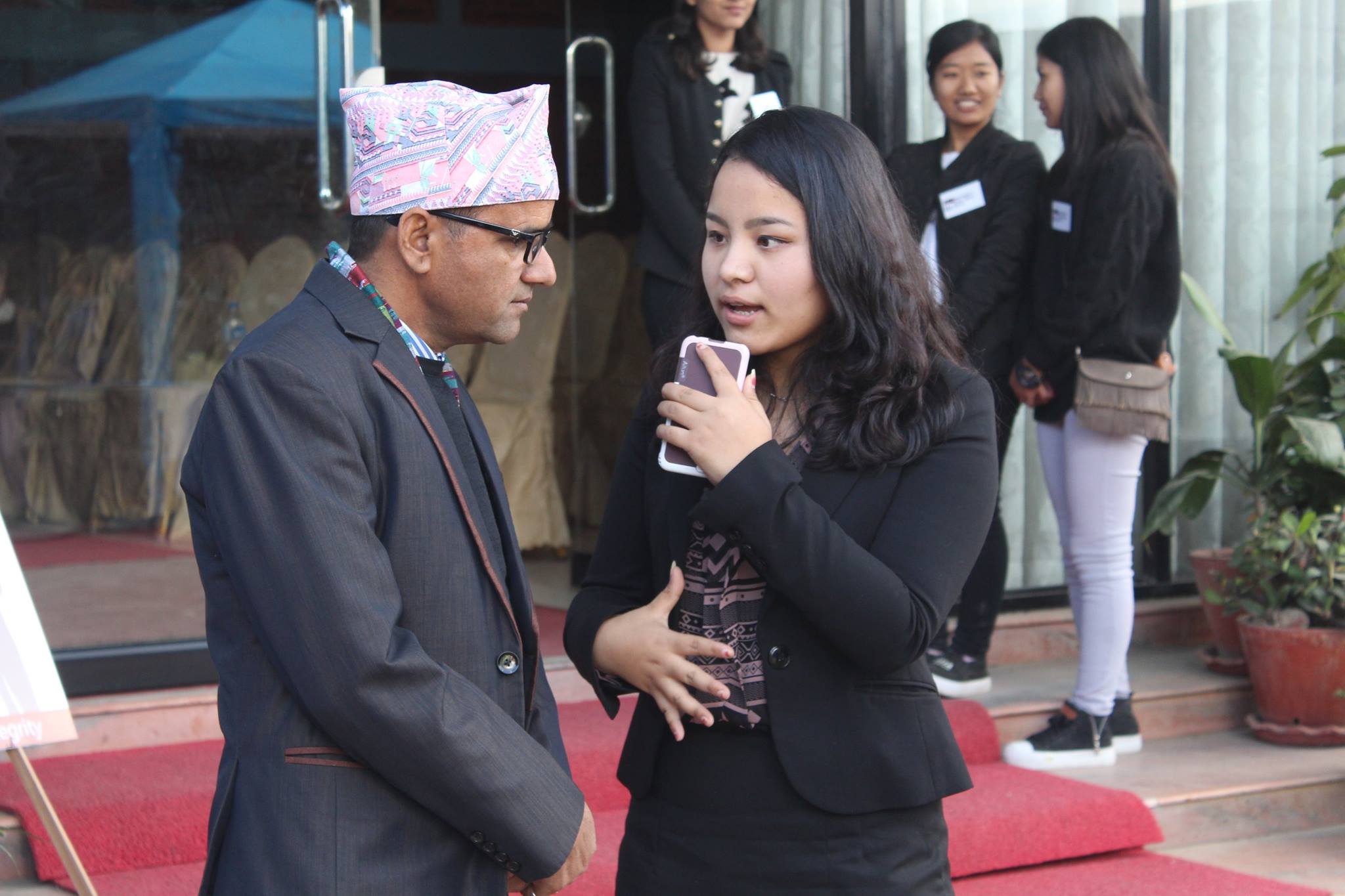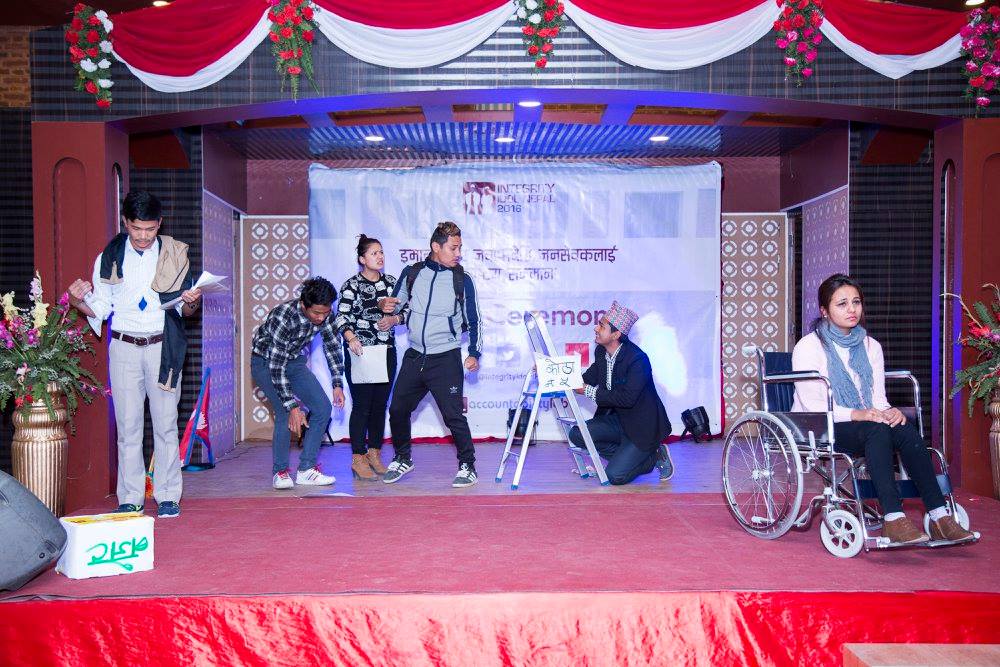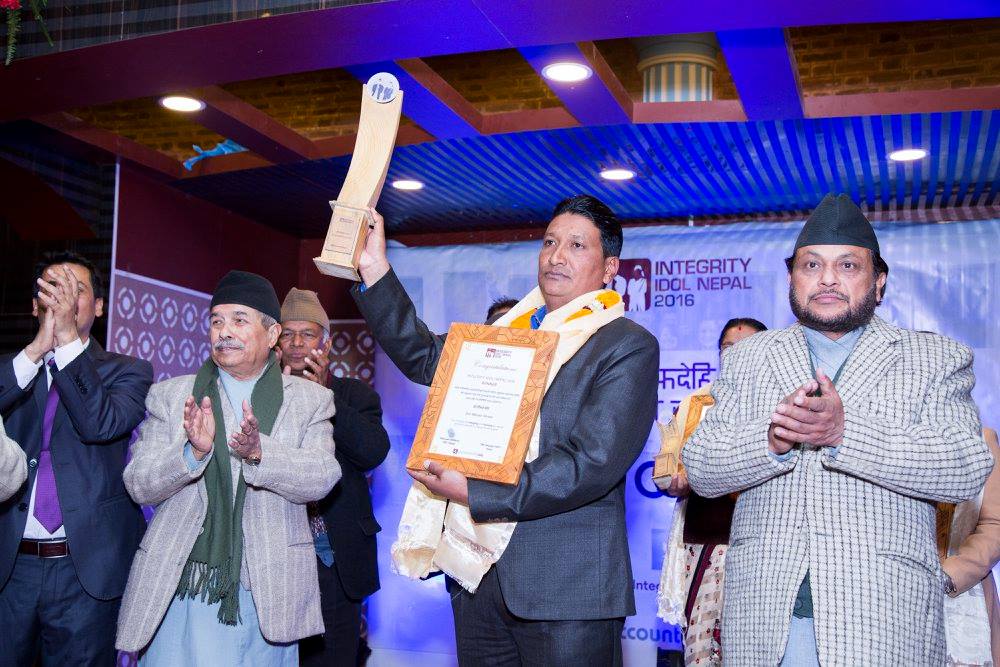NEWS
January 31, 2017

IN BRIEF
By Samita Thapa and Suresh Chand What does it mean to have integrity? There is a widespread perception that the Nepali civil service is deeply corrupt. The solution to this problem is not in “naming and shaming” the rule breakers but in “naming and faming” those officials doing the right things. The Integrity Idols we have had the honor to “name and fame” are incredible- from Pradip Kanel who changed CDO office to people’s office-a place of ‘people-work’ instead of an exercise in paper-work; to Gyan Mani Nepal and Dor Bikram Shrees who transformed education in Panchthar and Gulmi respectively; […]
SHARE
By Samita Thapa and Suresh Chand
What does it mean to have integrity? There is a widespread perception that the Nepali civil service is deeply corrupt. The solution to this problem is not in “naming and shaming” the rule breakers but in “naming and faming” those officials doing the right things. The Integrity Idols we have had the honor to “name and fame” are incredible- from Pradip Kanel who changed CDO office to people’s office-a place of ‘people-work’ instead of an exercise in paper-work; to Gyan Mani Nepal and Dor Bikram Shrees who transformed education in Panchthar and Gulmi respectively; to Bindu Kumar who has fought for accountability and women’s rights in Nepalgunj; to Pawan Kumar Mandal, who has worked non-stop to improve health outcomes in Kalikot. These Idols are living proof that honorable civil servants are building accountability and working honestly within the Nepali government.
Over the past three years, the Accountability Lab Nepal has been running a national campaign called Integrity Idol to explore this question through identifying and celebrating Nepal’s most upstanding, accountable and innovative government officials. We collect nominations from citizens, pick the top 5 with the guidance of an expert panel and then turn the final selection back over to the public by creating short films about the nominees and their work. The episodes are aired on national television and radio, and people vote by SMS and online to select the winner.

Young journalists interview Idols and the public as they walk the red carpet at the 2016 Integrity Idol Nepal award ceremony.
A positive approach to the difficult challenge of corruption is important because it reframes the conversation around solutions and generates energy for change- and it is working. In 2014, we received 303 nominations for Integrity Idol from 33 districts and received more than 10,000 votes. This year, we received nearly 850 recommendations from 67 districts and nearly 100,000 votes from Nepali citizens eager to promote integrity within their government. Earlier this month, more than 700 people, including government officials and dignitaries, attended the ceremony to crown the winner- Dor Bikram Shrees, a school principle from Gulmi district. What’s more, all 15 Integrity Idols named since the inception of the program are working harder than ever to make government work or the Nepali people. Public recognition builds even greater energy for reform.
Now, we are creating a network of these reformers to help them connect with each other, share lessons and amplify their impact. Over time, this group will become an incredibly powerful community for positive change across the country. Last week, we hosted our first Integrity Summit with the winners and finalists of Integrity Idol for the past three years, judges for the competition and other prominent experts in the field of governance. This is what we learned:
First, integrity begins with the individual. Too often, we point fingers at those in power for corrupt behavior without seeing that we have internalized this behavior ourselves, just in a much less public way. Integrity begins with all of us- at home, at school and in our work places. Individually we have to make sure that the set of values we profess is the same as those by which we live our lives, and collectively this will create an environment for change. As Suryanath Upadhyay, the former head of the CIAA pointed out at the summit: “Integrity begins when you love yourself and serve others.”
Second, change takes time. New rules or procedures, or new people in positions of power will not create integrity and accountability overnight in Nepal. Often, the people with the greatest integrity are not in the positions we would expect- but we must work with them to expand their influence and power. Dor Bikram Shrees is not a high-ranking government official- he is a school principal from a small town in Gulmi district. But the influence he can have over future generations through education is significant- and this will slowly change the way decisions are made and the incentives that drive behaviors. We need to build a new generation that acts differently.
But third, incremental progress is essential. Integrity requires trust, and trust in turn comes through delivery on promises. The Integrity Idols agreed that promising to take an action- however small- and completing that action on behalf of citizens is a critical part of demonstrating integrity. If repeated, this process builds trust, which allows for further action and progress. For example- in Sarlahi District, Pradip Raj Kanel translated the citizen charter into audio form in the local Maithali language- this continue to build credibility with citizens that he will respect and act upon the charter itself.
Finally, role-models are incredibly important. The reason Integrity Idol works is because it highlights everyday heroes that we can emulate. The Integrity Idols remind us that an accountable, effective government is possible, and there is a new reality for Nepal that we can all help build. One of the most inspiring outcomes of Integrity Idol is the number of volunteers who have joined us over the past three years who now want to become civil servants. As one of them said to us recently: “Before, I would never have worked for the government- I thought it was corrupt. Now I know there are good people serving citizens, and I can too.”

A local theater group performs a play at the Integrity Idol 2017 ceremony bringing attention to the situations of disabled people in Nepal.
The Integrity Idol movement is growing and has now become an example for the world, with 8 other countries replicating the competition this year and the Nepali winners becoming well-known. From New York to New Delhi, they are sharing the message that integrity is possible. We want every Nepali to know that corruption is not what we deserve. The solution lies in focusing on the “do-gooders” not the “wrong-doers.” We all have a role to play in supporting civil servants who work with transparency and accountability. That is why integrity is our religion and why we worship our Integrity Idols.
Suresh Chand and Samita Thapa are both Accountability Residents at Accountability Lab Nepal. Read more about Integrity Idol on the website at www.integrityidol.org and follow Integrity Idol on Twitter at www.twitter.com/integrityidolnp

